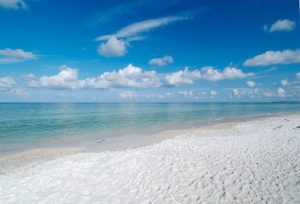Red Tide – Florida Gulf Coast

 The Florida Gulf Coast has been in the news in recent weeks and many residents and visitors have been expressing growing concern over the most recent outbreak of red tide. At Michael Saunders & Company, we are committed to not only helping those we serve but dedicated to the overall health and well being of our region. As such, this blog offers a breakdown on what you need to know about red tide, resources for learning more, and a look at how the community is working to address the issue.
The Florida Gulf Coast has been in the news in recent weeks and many residents and visitors have been expressing growing concern over the most recent outbreak of red tide. At Michael Saunders & Company, we are committed to not only helping those we serve but dedicated to the overall health and well being of our region. As such, this blog offers a breakdown on what you need to know about red tide, resources for learning more, and a look at how the community is working to address the issue.
What is red tide?
Red Tide has been occurring on Florida’s Gulf Coast for centuries. As early as the 16th century a Spanish explorer recorded stories by Florida Indians of toxic “red water” and the resulting death of birds and fish. It is interesting to consider that there are numerous “toxic tides” across the globe including Taiwan, Guatemala, Korea, Hong Kong, and Venezuela. Specifically, the Florida red tide is caused by a higher-than-normal concentration of a microscopic alga named Karenia brevis. This phenomenon can discolor the water to a red or brown hue and can cause respiratory issues in humans and result in dead sea life, which ultimately washes up onto our beaches. These outbreaks are nothing new and generally only last a few weeks. This most recent bloom, however, has been greater in severity and duration and has created cause for concern.
What’s Being Done?
The Gulf Coast is mobilizing to better understand and fight back against this phenomenon. Here is an overview of how individuals, the government, and institutions are currently working around the clock to address the situation.
- Gov. Rick Scott has declared a state of emergency for Manatee, Sarasota, Charlotte, Collier, Hillsborough, Lee, and Pinellas counties. This action will provide significant funding and resources to the areas experiencing red tide.
- The Florida Fish and Wildlife Conservation Commission (FWC) has sent teams of biologists and scientists to assist in clean up and animal rescue efforts.
- Local communities are coming together to clean up our beaches and provide help to ailing marine life, including dolphins, manatees, and sea turtles.
- Mote Marine Laboratory continues to research and investigate Florida’s red tide and is even working on a proposed technology to mitigate the effects.
- A cooperative effort between Mote Marine and the FWC is designed to help mitigate the adverse impacts of red tide. The program includes red tide monitoring, research, public outreach, and education.
What You Can Do
It may feel as though there isn’t much you can do but the FWC recommends taking action with the below steps.
- Report fish kills to FWC at (800) 636-0511.
- Report sick, injured or dead wildlife to FWC at (888) 404-3922.
- Volunteer to sample water through FWC’s Volunteer Program by filling out this online form for the Red Tide Offshore Monitoring Program.
- Help minimize blooms by reducing or eliminating fertilizer use.
- Support the use of artificial wetlands and retention ponds that capture runoff and remove nutrients.
Resources and More Information
Take the time to educate yourself and alleviate fears by hearing from the experts.
- Mote Marine and Florida Red Tide or watch this Red Tide Forum hosted on August 11
- Florida Fish and Wildlife Conservation Commission – Red Tide
The Silver Lining
While this occurrence of red tide has certainly been notable and severe, we expect it to pass as it always does. Our beaches will emerge once again pristine and perfectly suited for visitors. Real estate in Sarasota, Manatee, and Charlotte County has remained strong for the second quarter and into the third. Meanwhile, those in our region can still find an extensive calendar of things to do away from the coastline whether steeped in culture, dining, shopping, recreation, or visiting scenic sights and parks and on the mainland.
We encourage you to visit the above online resources for more information.
MSC Blog – August 14, 2018